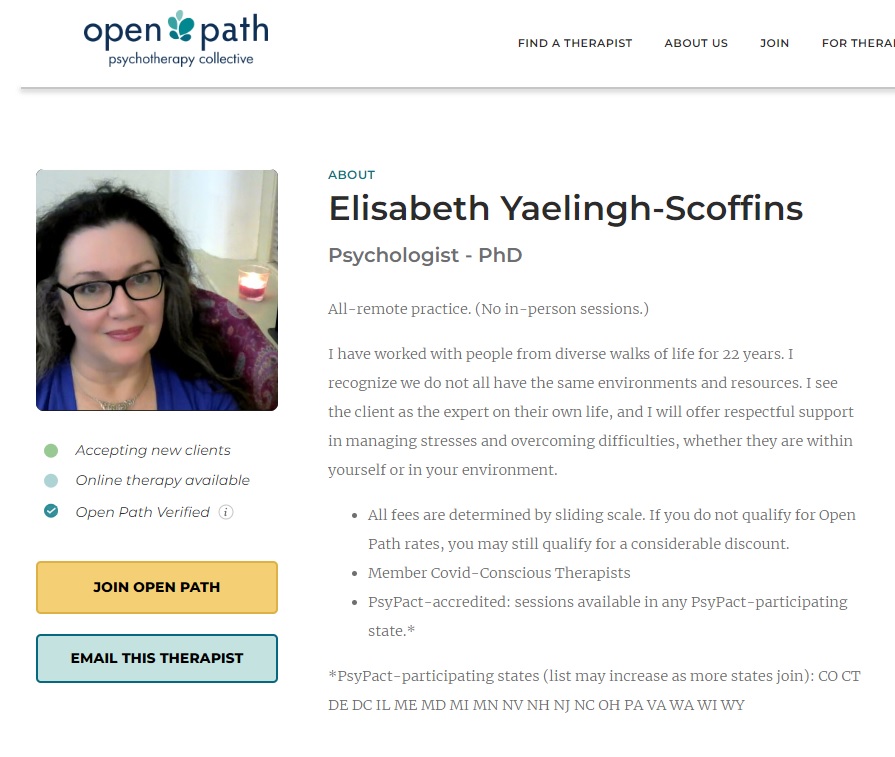It can be hard to access competent mental health care when you need it most.
While some progress has been made in requiring insurances to cover mental health needs, it can still be difficult to find good practitioners who are in your network. And even in those cases, insurance plans may have a high deductible, which can mean you will pay out of pocket for mental health services for months. And because of high administrative burden coupled with extremely low coverage rates, a considerable number of practices do not participate in insurance coverage networks.
As one practice put it, “reduced rates, extensive paperwork and rigid restrictions that are imposed on therapists by the insurance companies has pushed many of the most talented therapists away from working on insurance panels.”
So how can you get the mental health care you need?
Reimbursement: this is similar to the model used by many dental care practices. You do have to pay up front, but then your insurance company reimburses you or at least puts your payment towards your deductible for the year.
How it works: You pay your session fee at the time of service, and your therapist’s practice gives you a receipt that you send to your insurance company. Some companies also require a form or set of forms to be filled out. Some practices offer reimbursement service, that is, they will send in the receipt and forms for you.
While our practice does offer reimbursement services, not every psychology practice does. If your therapist does not, you can call your insurance company for instructions, or you may even want to try a fee-for-reimbursement app service such as Better.
Need-based programs: This may include sliding-scale fees such as community clinics may offer, which usually means clinicians are donating their time. This model may also include a discount clearinghouse service such as Open Path Collective, which allows low-income patients to find a therapist who is able to offer some sessions at a discount. Some practices also offer scholarships for those who are in financial need and do not have access. There may be a waiting list for free or nominal-cost services.
How it works: Services such as Open Path require signing up online. It’s a good idea to make sure there are therapists with openings in your location (usually our practice does have a few!) before paying a membership fee. For in-house sliding-scale or scholarship treatments, practices may require you to show that you are in financial need; there may also be a waiting list.
Professional Discounts: Practices may have agreements with local organizations such as businesses, schools and colleges, or medical facilities, so that their employees or students can get a discount. Sometimes this may be in the form of an EAP (employee assistance program) and sometimes it may be a different kind of arrangement.
How it works: If your workplace has an EAP (our practice participates with Mazzitti & Sullivan EAP as well as Quest EAP), ask what mental health services may be available. Often you can get 3-5 sessions for free. If your college has a counseling center, you may attend sessions there, or they may offer referrals to local practitioners. Otherwise you can ask your therapist directly what professional discounts they offer. Usually this will involve filling out a form of some kind. (Our practice offers certain professional discounts that are listed at the bottom of our financials page.)
Bottom line, if you are not sure what discounts may be available, please ask your therapist!
Online Services: Some practices may offer online sessions or may even specialize in only online services for somewhat of a discount. It’s important to carefully review any online therapy service you use to make sure they are legitimate, licensed, and well-reviewed. Online services are usually not appropriate for those under 18 except in rare circumstances. (Our practice does not currently offer online services.)
Support Groups: Most areas have a number of support groups for various issues that are peer-led, that is, you’re talking with others who may be experiencing similar issues as yours. You may want to look at Healthfinder, for example.
For more in-depth discussion of how to use out-of-network benefits, see wellbeing.com‘s page.

